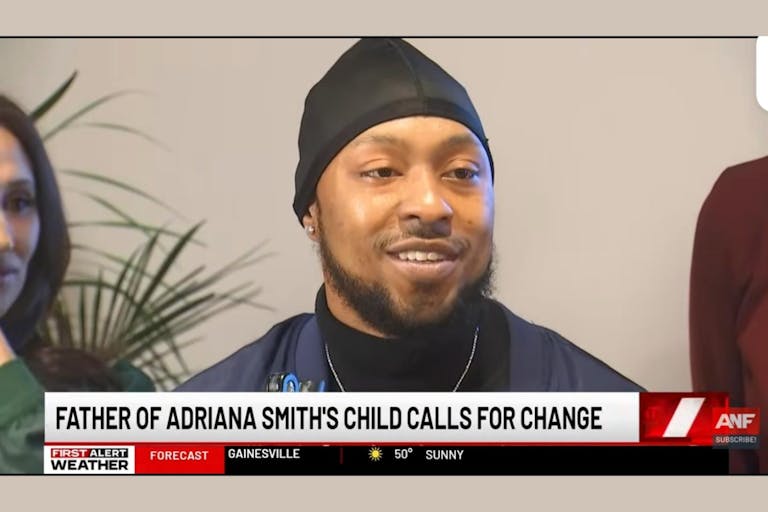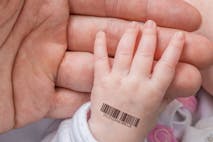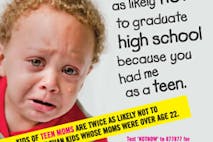
Court grants baby Chance's father sole custody
Nancy Flanders
·
Normal?
A pro-choice organization has launched a campaign that attempts to “normalize” abortion. When looking at their abortion testimonies, however, the website ignores much of the true normal.
My Abortion, My Life is a new, Cleveland-based ad campaign wanting people to speak out about their abortions. In their own words:
“My Abortion, My Life is a public awareness campaign to end the silence and shame surrounding abortion. Our goal is to promote a new dialogue, one that shifts the conversation from the rhetorical to the experiential, from the language of politics to the language of real women and men. Only through sharing our truths about abortion can we truly support women’s full range of reproductive options.”
Though I fully disagree with the ideology fueling this campaign (the campaign is headed by a 2nd-trimester abortion clinic), we have one thing in common: a desire to share the stories of those affected by abortion. When one looks at the stories on My Abortion, My Life’s website, however, they only show a small portion of the picture.
This week I was able to talk with a high school student who had an abortion at age 16. She was struggling with regret during the day and haunted by abortion-related nightmares at night. Though this girl is now seeking counseling to help cope with her past, her symptoms were nothing unique. In fact, the Elliot Institute reports that women who abort have a 65% higher risk of clinical depression and are 6 to 7 times more likely to commit suicide than delivering women.
Despite these troubling statistics, story after story on My Abortion, My Life highlights lives with “No regrets!”, but no stories are shared by the women who regret their abortions. If My Abortion, My Life really wishes to share the true stories of abortion, why are they ignoring the large percentage of women who live in pain at the loss of their child?
My Abortion, My Life isn’t the only group ignoring the deep pain that can be caused by abortion. Though abortion-giant Planned Parenthood admits “some” women feel regret for a little while, their abortion information webpage states:
“Ultimately, most women feel relief after an abortion.”
Why are organizations that claim to support women brushing aside the devastating impacts of abortion? “Relief” doesn’t usually result in depression — or, for that matter, spending one’s day reading stories of lives liberated by abortion.
With that said, women who regret their abortions aren’t the only people overlooked by My Abortion, My Life. Even if every abortion resulted in these ideal, regret-free situations, a key group would not have been covered. If one truly wishes to move “ from the rhetorical to the experiential, from the language of politics to the language of real women and men,” the stories of those people most directly affected by abortion must also be told: the aborted.
Article continues below
Dear Reader,
In 2026, Live Action is heading straight where the battle is fiercest: college campuses.
We have a bold initiative to establish 100 Live Action campus chapters within the next year, and your partnership will make it a success!
Your support today will help train and equip young leaders, bring Live Action’s educational content into academic environments, host on-campus events and debates, and empower students to challenge the pro-abortion status quo with truth and compassion.
Invest in pro-life grassroots outreach and cultural formation with your DOUBLED year-end gift!
Unfortunately, there can never be a My [Mom’s] Abortion [Ended] My Life complementary website, voicing the stories of the thousands whose lives are literally destroyed by abortion. The experience that makes a person most eligible to speak about the impact of abortion is the very experience that snuffs out that person’s ability to ever discuss it. Aborted children are never given a chance to speak about how their lives are affected by abortion.
The fact of the matter is, abortion is already far too normal. Still, My Abortion, My Life, by ignoring two major groups — women who regret their abortion, and the aborted — masquerades a rather abnormal result as though it were the norm.
If you’d like to hear the whole story about those affected by abortion, here are some helpful links:
Silent No More Awareness Campaign
Rachel’s Vineyard Abortion Impact Stories
Here’s The Blood Abortion Footage (Warning: Graphic Content)
Live Action News is pro-life news and commentary from a pro-life perspective.
Contact editor@liveaction.org for questions, corrections, or if you are seeking permission to reprint any Live Action News content.
Guest Articles: To submit a guest article to Live Action News, email editor@liveaction.org with an attached Word document of 800-1000 words. Please also attach any photos relevant to your submission if applicable. If your submission is accepted for publication, you will be notified within three weeks. Guest articles are not compensated (see our Open License Agreement). Thank you for your interest in Live Action News!

Nancy Flanders
·
Issues
Angeline Tan
·
Guest Column
Emily Berning
·
Opinion
Nancy Flanders
·
Opinion
Mark Wiltz
·
Opinion
Mark Wiltz
·
Opinion
Lucy LeFever
·
Opinion
Lucy LeFever
·
Opinion
Lucy LeFever
·
Opinion
Lucy LeFever
·
Politics
Lucy LeFever
·